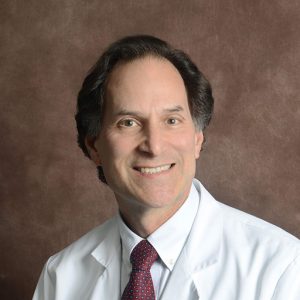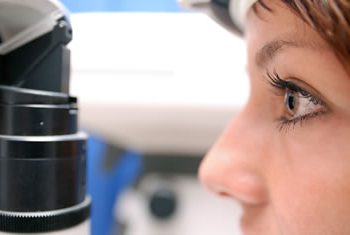If a Patient’s Cancer Is So Advanced…
- On July 11, 2016
- bioethics, cancer
Who Decides Whether to Provide Palliative Care or Aggressively Treat It?
 Aron Rose, MD, is an ophthalmologist specializing in cataract and glaucoma surgery. He has treated patients and been invited to teach worldwide, including in China, Uzbekistan, India, Mongolia, Bhutan, Indonesia, Ghana, Myanmar, Gambia, and Liberia, and is an expert on blindness prevention and treatment in the developing world. The previous director of residency training and an associate clinical professor at the Yale University Schools of Medicine and Nursing, Dr. Rose also lectures regularly at the Yale Multidisciplinary Center for Bioethics.
Aron Rose, MD, is an ophthalmologist specializing in cataract and glaucoma surgery. He has treated patients and been invited to teach worldwide, including in China, Uzbekistan, India, Mongolia, Bhutan, Indonesia, Ghana, Myanmar, Gambia, and Liberia, and is an expert on blindness prevention and treatment in the developing world. The previous director of residency training and an associate clinical professor at the Yale University Schools of Medicine and Nursing, Dr. Rose also lectures regularly at the Yale Multidisciplinary Center for Bioethics.
He also chairs the Bioethics Steering Committee of the American Society for Clinical Pathology (ASCP)-led Partners for Cancer Diagnosis and Treatment in Africa, a Clinton Global Initiative: Commitment to Action that provides patients in underserved areas of Sub-Saharan Africa access to rapid cancer diagnostics and appropriate care and treatment.
Annually, approximately 650,000 people develop cancer and about 510,000 cancer deaths occur in Africa due to limited treatment and resources. More than one-third of cancer deaths in Africa are from cancers that are easily preventable and/or treatable, if detected early. This initiative brings together organizations with the expertise necessary to diagnose cancer earlier and provide appropriate treatment, as well as establish a sustainable laboratory infrastructure to address these issues in the future.
By leveraging leapfrog technology, and the skills and experience of ASCP members, clinicians in Sub-Saharan Africa can have access to quality real-time diagnostics. This technology, which is already in use, provides sea- mless interaction, management, and secure access to
pathology and laboratory clinical multimedia, including digital whole slide images. System workflow capabilities are designed to allow pathologists to diagnose cases in real-time with multi-level security and audit tracking.
Dr. Rose recently took time for an interview with Critical Values to talk about the initiative and the complex bioethical issues that the coalition is encountering.
Critical Values (CV): What are the key bioethical issues to consider for this initiative?
Dr. Rose: The first issues we’re grappling with relate to informed consent for biopsies. These fall into two major categories: diagnostic pathology consents and consents for specimens that might also be used for future research. There are cultural factors which are terribly important to consider here, as well as historical ones. For instance, in some African cultures the concept of “self” is enriched by beliefs about ancestors and spirits inhabiting the body that are completely absent in the West. Removal of por- tions of the body may violate beliefs in the importance of dying fully “intact.” Specimens that might be used for future research touch on issues of “ownership,” finan- cial reward, inter-tribal dynamics, and, sadly, a history of insensitivity to indigenous cultures for profit.
CV: If there is a scarcity of medical resources, how do you determine which patient is eligible for certain kinds of treatment?
Dr. Rose: This is a fascinating subject, and one central to bioethics even in the industrialized world where transplan- tation and other allocated services [mean that we] must constantly redefine issues surrounding “triage.” There will be a constant effort made to balance resource with need. That equation changes based on demographics, access to screening and care, follow up, and even palliation.
CV: Likewise, if a patient’s cancer is so far advanced, how do you determine whether to provide palliative care or attempt to aggressively treat the cancer?
Dr. Rose: Once again, cultural factors are expected to play a large role in this question. Palliative care is a new concept in many parts of the world. Death outside of the home, or altered through medical intervention and/or drugs may be considered violations of a “natural” process. Local beliefs vary greatly by community or tribe. Community resour- ces, including traditional healers, will play roles we can- not anticipate. We’re hopeful that the services we offer will positively impact a very large population previously unserved. But how it’s done is really the key. The most important attributes we can contribute to the process are cultural humility and a willingness to offer services that lead with a humanitarian spirit.
CV: How does the coalition determine in which countries to set up a site?
Dr. Rose: We are working closely with several govern- ments and ministers of health to determine with which countries we initially partner, and the order in which to roll out our work. As you can imagine, there are many consid- erations that stretch from pre-existing infrastructure to ability to coordinate efforts. This requires stability, orga- nization, long-term commitment, imagination, and great vision. The framework and organizational structure con- structed by ASCP Chief Executive Officer E. Blair Holladay and ASCP are rock solid and fortified by enormous scope and depth of expertise.
CV: Are there differing levels of awareness of bioethics among healthcare providers in Sub-Saharan Africa? If so, might this pose a challenge?
Dr. Rose: Oh yes. The level of awareness regarding bedrock principles of bioethics ranges from great sophistication to zero. But I might add that this is also the case in the industrialized world, to some extent. If one [astutely] views medical communities as intellec- tual/social cultures, it’s readily apparent that attune- ment and alignment to bioethical issues varies greatly even in our country. As a physician practicing in the States for almost three decades, I can assure you that this is the case. Levels of interest in bioethics vary by region and even by specialty. This is changing. Over the past few decades, nearly every medical specialty society has posted its own code of ethics, instituted its own boards of inquiry, and so forth.
CV: What have been the challenges to telepathology in the Sub-Saharan African healthcare setting?
Dr. Rose: Telepathology refers to implementing whole slide imaging and cloud-based diagnostic systems. [Challenges include] addressing issues of in-country broadband capacity, considering power grid issues, and assessing the need for generators.
CV: How is the Partners coalition, with its expanding network of resources, working to overcome these challenges?
Dr. Rose: It’s a three-step process. The first is to establish automated histopathology systems in high-population centers. The location of these centers is extremely impor- tant because they must be accessible to clinicians and their patients, as well as locally trained lab technicians, who must process and scan biopsy specimens from these sites. The next step is already in place and functioning well: ASCP pathologists in the States are using cloud- based technology to view the processed sample(s), diag- nose the patient, and upload their findings. Finally, local clinicians access the results within 24 to 72 hours and institute treatment protocols. I see the majority of our initiative’s work concentrating on expanding and improv- ing all aspects relating to screening, care, and treatment. This really extends to medical training as well.
Ms. Montgomery is a Communications Writer for ASCP.


